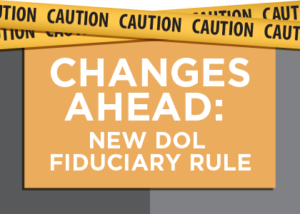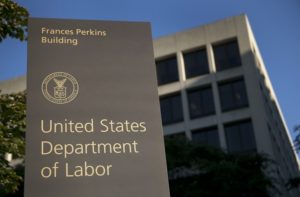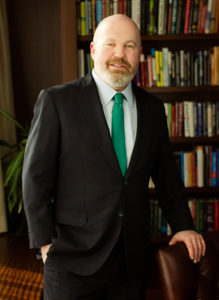 Among the best known of the Obama-era financial regulations is the so-called “Fiduciary Duty Rule” for investment advisers of retirement accounts.
Among the best known of the Obama-era financial regulations is the so-called “Fiduciary Duty Rule” for investment advisers of retirement accounts.
It declared that financial advisers for retirement accounts act as “fiduciaries” and therefore must offer conflict-free advice, avoid misleading statements, receive no more than reasonable compensation, and always act taking into account the client’s best interest. On the enforcement end, the rule provides a platform for litigation in the case of failure to comply. The regulation allows for some flexibility and discretion when determining compliance with the rule – both a strength and possible weakness.
The rule was supposed to go into effect April 10, 2017.
Instead, in February 2017 President Trump ordered the Department of Labor to review the rule, with a plan to repeal or blunt its effects, if it found the rule reduced the availability of advice, caused disruption in the investment industry, raised the cost of financial advice, or increased the likelihood of litigation.
 I suspect the rule – when and if implemented – does all of these things.
I suspect the rule – when and if implemented – does all of these things.
The fiduciary rule forces advisers – upfront – to consider carefully their inherent conflicts of interest, their fee structure, and the appropriateness of any investment, from their client’s perspective. That’s a good thing. We hope that advisers would do these things without a rule in place, but we are not all angels and the rule should prompt better behavior.
The problem with the fiduciary rule is what may happen following losses.
With investing – which always involves risk – things can and will go badly. And when they go badly, litigious Americans want someone besides themselves to blame. We know lawyers stand ready to help them find the organizations and individuals to blame.
Investment manager Cliff Asness’ thoughtful critique influenced the following thoughts on the Fiduciary Duty Rule.
I worry specifically about two problems. First, when an investment goes wrong, however appropriate it may have seemed at the beginning, I fear the tendency to look back and find fault with the advice, high fees, or potential conflict of interest that may be found, after the fact. “What were you thinking advising your client to invest in Pets.com?” was easy to say after the tech crash of 2000, even though it may have seemed like a great idea at the time. On the flip side, investing in the Facebook IPO always seemed like madness to me, but now who has had the last laugh? The point is that terrible advice is often determined only after the fact, and by investment results, rather than by an objective process. Is the fiduciary rule an invitation to lawsuits when the next crash happens? Is it a risk-quashing rule that will make investment advisers only advocate moderate risk-taking for fear of future litigation? I don’t know.

The second problem has to do with proportionality. Meaning, does the fiduciary rule take into account the difference between a small risk and a large risk in your portfolio? If I manage $100,000 of yours, and you invest following my advice in an expensive, high-risk, high-return venture capital fund, that might be bad. In fact it might get me sued under the fiduciary rule if most of the $100,000 is eventually lost. But if you are worth $10 million, and you’ve only allocated 1% of your net worth to my risky fund, doesn’t that change the equation? I mean it should, but I don’t know what a court will decide when you get a good lawyer to go after me and my firm regarding that $100,000 loss.
Ed Hart, Managing Director at Sendero Wealth Management, a San Antonio-based investment advisory serving high net worth families and institutions, acknowledges mixed feelings about the fiduciary rule.
Says Hart, “There’s an element of this rule which is positive. You want to protect people from the groups that are just trying to meet a sales goal. This is going to provide some protection to people who have been victimized.“
But Hart worries about short-termism in unhappy clients, or their lawyers. “Generally where we’re helping people is with the discipline of investing. It works.
If you introduce an opportunity to think more short-term, and have recourse to potentially sue, because you’re not happy with 6 months, or 2 years, of performance, then [the rule] has the chance to unravel that.” Investment advisors all over the country may struggle with that new, heightened risk to their business.
It’s also logical to assume that this regulation, like most regulation, will favor big legacy providers over small businesses. The big firms can adjust more easily to the higher cost of compliance and litigation, while the small firm might not be able to do so.
Look, my own personal advice about retirement investing is super simple: Just buy a diversified, low-cost (probably indexed) 100 percent stock mutual fund, and never sell. Do that with 95 percent of your retirement funds and you’ll be fine. If I were acting as your fiduciary (important notes: never take advice from a financial blogger you’ve never met, and also I’m not your fiduciary) that kind of advice would probably be fine. And yet, I think the world should allow for a greater range of retirement investing – if only so I can completely lap the competition with my passive stock-index investing approach.
What is my preferred solution, instead of the fiduciary rule? So glad you asked. Fee disclosures, in both percentages and total dollars should be in 36-POINT FONT on every document, so that clients cannot fail to see how much they’re paying for financial advice, much of it not worth the cost. Outright fraud is rare in the industry, whereas overcharging for mediocrity is the absolute everyday rule. I fear this regulation will increase costs and litigation, without directly addressing the most pressing problem of investment advising – high costs.
Example of 36 point FONT:
This post costs you, the reader, precisely $0
Please see related posts:
A good article by Noah Feldman on costs over time of investment management
Post read (205) times.




